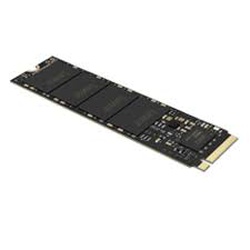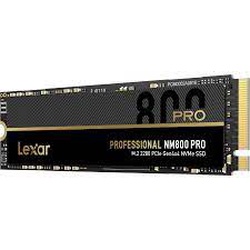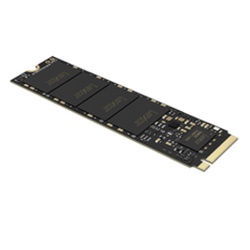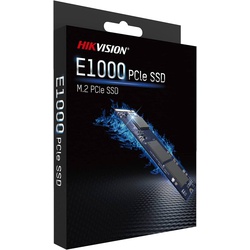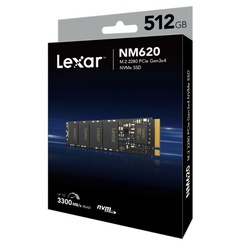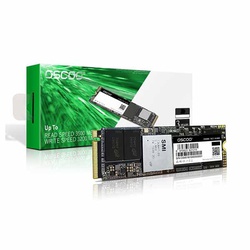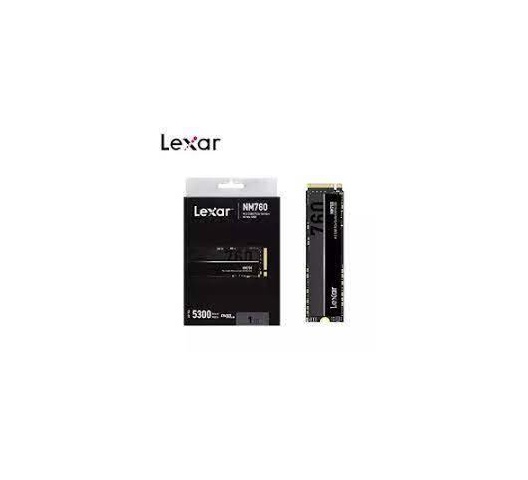
LEXAR LNM760 internal 1TB SSD M.2 PCIe Gen 4*4 NVMe 2280 SSD, LNM760X001T-RNNNG
by LEXAR
The LEXAR LNM760 is a 1TB internal Solid State Drive (SSD) that uses the M.2 form factor with a PCIe Gen 4 x4 interface. This SSD is designed to provide fast and efficient storage performance for various computing needs
- Capacity: 1TB (terabyte)
- Form Factor: M.2 2280, which means it has a width of 22mm and a length of 80mm, conforming to the M.2 standard.
- Interface: PCIe Gen 4 x4, which is a high-speed interface that can provide significantly faster data transfer rates compared to PCIe Gen 3.
- NVMe Protocol: NVMe is a protocol designed specifically for SSDs to take full advantage of their performance capabilities, resulting in improved speed and responsiveness.
- Read and Write Speeds: Since specific speed figures aren't mentioned in the provided description, you would need to refer to the manufacturer's specifications for the exact read and write speeds of this particular SSD model.
- Reliability: SSDs are generally more reliable than traditional hard drives due to their lack of moving parts, which can result in lower failure rates and better durability.
- Usage: The LEXAR LNM760 1TB SSD can be used in various applications such as gaming, content creation, data storage, and overall system performance improvement.
- Compatibility: It's important to ensure compatibility with your system before purchasing. M.2 SSDs like this one are commonly used in laptops and desktops that support the M.2 form factor and have PCIe Gen 4 slots.
| SKU | 1779 |
|---|
Reviews
Description
LEXAR LNM760 internal 1TB SSD M.2 PCIe Gen 4*4 NVMe 2280 SSD, LNM760X001T-RNNNG
LEXAR LNM760 1TB SSD is designed to offer high-performance storage capabilities, leveraging the fast data transfer rates of the PCIe Gen 4x4 NVMe interface. This type of SSD is commonly used to upgrade laptops, desktops, and other compatible devices to improve overall system responsiveness and decrease data loading times. It's suitable for various tasks, including gaming, content creation, and demanding applications that require rapid access to large amounts of data.
Features
-
High Capacity: With a storage capacity of 1TB (terabyte), the SSD can accommodate a significant amount of data, including operating systems, applications, files, and media.
-
M.2 Form Factor: The M.2 2280 form factor allows for easy installation in modern laptops, desktops, and other compatible devices. Its compact size helps conserve space within the system.
-
PCIe Gen 4x4 Interface: The use of PCIe Gen 4x4 interface enables faster data transfer speeds compared to previous PCIe generations. This results in improved overall system responsiveness and reduced data access latency.
-
NVMe Protocol: The NVMe (Non-Volatile Memory Express) protocol is designed specifically for flash-based storage like SSDs, optimizing data access and minimizing bottlenecks, which can lead to faster performance.
-
High Speeds: The combination of PCIe Gen 4x4 and NVMe typically results in impressive read and write speeds, allowing for quick loading times for applications and large file transfers.
-
Reliability: SSDs are generally more reliable than traditional hard drives due to their lack of moving parts. This contributes to enhanced durability and longevity.
-
Energy Efficiency: SSDs tend to consume less power than traditional hard drives, which can lead to improved battery life in laptops and reduced power consumption in desktops.
-
TRIM Support: TRIM is a command that helps maintain the long-term performance of SSDs by efficiently managing data blocks that are no longer in use.
-
Advanced Flash Memory: Depending on the details of the drive's specifications, it might utilize advanced flash memory technology to provide high endurance and reliability.
-
Heat Dissipation: Some M.2 SSDs include heat spreaders or thermal management solutions to ensure that the drive doesn't overheat during prolonged usage.
-
Encryption: Some SSDs offer hardware-based encryption to enhance data security, protecting your data from unauthorized access.
-
Compatibility: The SSD is likely designed to be compatible with a wide range of systems, including those that support PCIe Gen 4. However, it's important to verify compatibility with your specific device before purchase.

